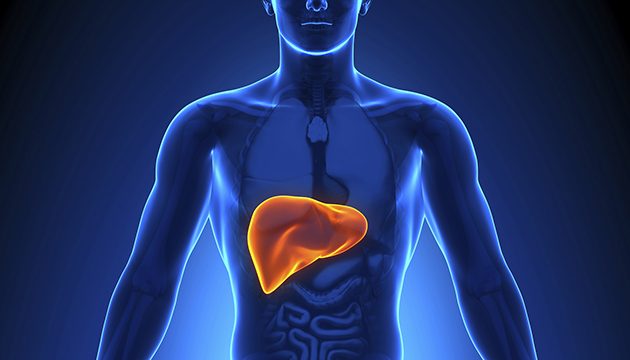Harm of alcohol for health and ways to protect the liver
Harm of alcohol for health and ways to protect the liver
Many people believe that drinking a glass or two of red wine or other alcoholic beverages every day is good for your health. Maybe it’s a myth created by pseudoscience and marketing?
The idea that wine is good for health was born in 1991 in one of the episodes of the popular American show 60 Minutes. The core of this hypothesis was that wine, especially red wine, contains antioxidant polyphenols. The compound resveratrol has gained great popularity, but levels of this substance in 140 ml (5 oz) of red wine range from 0.03 to 1.07 mg and in white wine it is typically 0.01 to 0.27 mg. Later studies showed that such low levels of resveratrol had no significant effect on reducing deaths from cardiovascular disease, cancer and other diseases.1
Resveratrol has many health benefits and is best obtained through supplementation in doses of 500-1000 mg per day. It takes about 500 to 1000 glasses of wine to get that amount of resveratrol.
There are other polyphenols in wine that have antioxidant properties and may benefit the cardiovascular system. However, its levels are far lower than those found in foods and supplements with proven heart benefits.
The notion that wine is the whole mystery of the French paradox seems unlikely given the food and lifestyle factors involved. First, some population-based studies have shown that just one glass of wine per month protects against cardiovascular disease. This amount is so small that it is unlikely to account for the observed beneficial effects.2 The protective properties can easily be explained by other dietary and lifestyle factors.
The alcoholic component has no positive effects, since it is a cytotoxin that stimulates antioxidant mechanisms. Given the health risks of even moderate wine consumption, it would be wiser to focus on food sources and supplements with heart-healthy compounds rather than red wine.4
Death rate from moderate alcohol consumption
The American Heart Association and other medical organizations around the world believe that moderate consumption has certain health benefits, but new scientific evidence shows this is not the case. In addition, the World Health Organization clearly states that alcohol is a toxic substance that causes serious harm to health and society.
Alcohol consumption has significant toxic effects on the brain, liver, digestive system, heart, blood vessels and immune system, among others. Before examining the data on the health effects of alcohol, it is important to define what is meant by “moderate” alcohol consumption. In general, “moderate” means drinking 100-200 grams of alcohol per week.
Let’s calculate how you can reach this level of consumption with wine. A bottle of wine (750 ml) contains five glasses, each containing 5 ounces (140 ml) of wine at 12% ABV. The same applies to 355 ml normal beer (5%) or 30 ml spirits with 40% vol.
Consuming 100 to 200 g of alcohol per week corresponds to one to two alcoholic drinks per day. Attention, the question is: does a weekly consumption of 100-200 g of alcohol contribute to health or longevity? Answer: definitely not.
According to a meta-analysis published in the medical journal The Lancet, drinking 200g of alcohol per week compared to 100mg reduces life expectancy by 1-2 years to 40 years, but only harms it.
Despite evidence to the contrary, consumption of alcohol, which may have health benefits, is limited to those over 40 years of age who consume alcohol in “limited” amounts. That means less than a glass of wine a week or more. That means it’s a lot less than a glass or two of wine a day.
Problems with alcohol metabolism
Alcohol is a cytotoxin and the way it is metabolized in the body amplifies this toxicity. When alcohol enters the liver, the enzyme alcohol dehydrogenase (ADH) converts it into an even more toxic compound called acetaldehyde, which is about 1,000 times more harmful than alcohol.
Acetaldehyde is primarily responsible for many of the harmful effects of alcohol consumption and the addiction process itself. Some people do not have sufficient levels or activity of an enzyme known as acetaldehyde dehydrogenase (ALDH). These people are more vulnerable to the harmful effects of alcohol and alcohol addiction. The reason is that acetaldehyde is not broken down properly. Normally, ALDH converts acetaldehyde into acetic acid and water.

A lack of ALDH causes the so-called “congenital alcohol intolerance”, which manifests itself in reddening of the face, neck, shoulders and sometimes the whole body after drinking alcoholic beverages. This disease is also accompanied by heart palpitations, nausea and headaches.
ALDH deficiency is one of the most common congenital enzyme deficiencies. It affects 35 to 40% of Asians and about 8% of the world population. People with congenital alcohol intolerance must abstain from alcohol consumption completely, as otherwise the body’s cells will be severely damaged.
The harmful effects of alcohol on health
At the cellular level, alcohol consumption is harmful at any dose, but as the dose increases, the effects become more severe. Again, alcohol and acetaldehyde are direct cellular toxins.
Here are some other negative effects of alcohol consumption:
1. Alcohol is a source of empty calories. Each alcoholic drink contains around 100 to 150 calories.
The body converts alcohol mainly into fatty acids.
2. Alcohol consumption affects blood sugar and can cause reactive hypoglycemia (low blood sugar).
3. Alcohol is a central nervous system depressant that can lead to low mood and energy.
4. Alcohol interferes with energy production (adenosine triphosphate), leading to faster fatigue and reduced endurance.
5. Regular alcohol consumption leads to obesity of the liver and disrupts its function in almost everyone.
6. Drinking alcohol interferes with the absorption or breakdown of nutrients, particularly water-soluble vitamins such as B vitamins and minerals.
7. Alcohol consumption negates many of the physiological benefits of exercise.
8. Alcohol reduces immunity and the body’s ability to heal itself.
9. Alcohol consumption can reduce human growth hormone secretion by up to 70%.
This list only lists the physiological effects of alcohol. And the combined cost of alcohol and alcoholism to health and society is simply immeasurable. However, it is estimated that they represent around 2.5% of the GDP of developed countries6. In the United States, these costs total approximately $525 billion.



